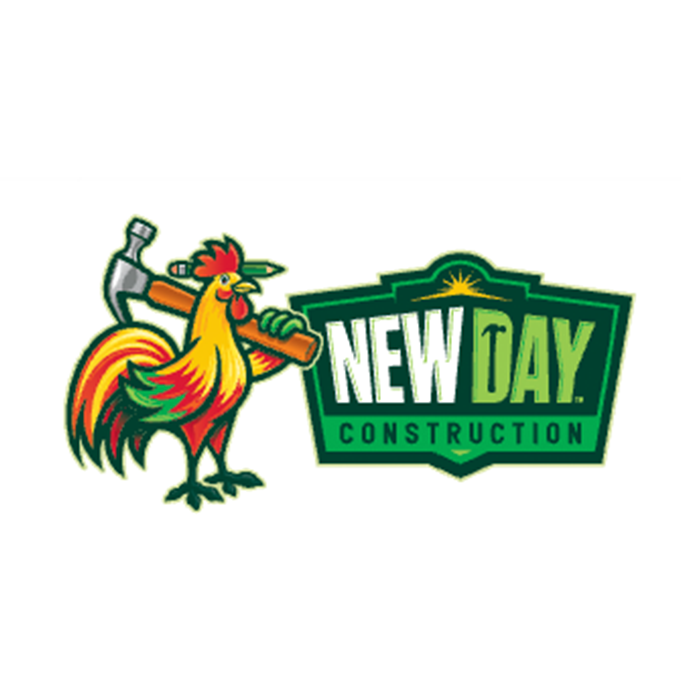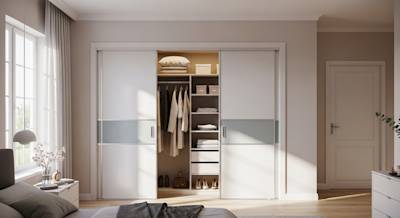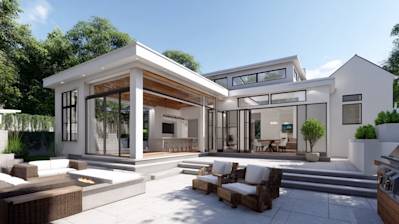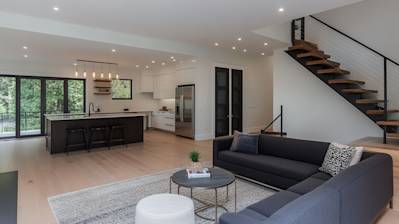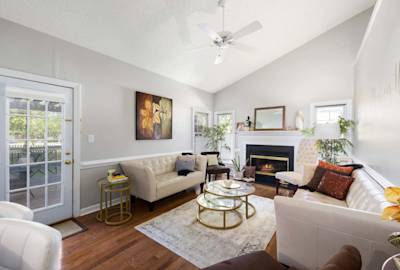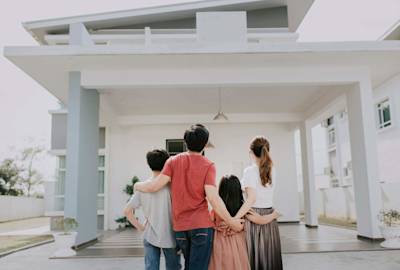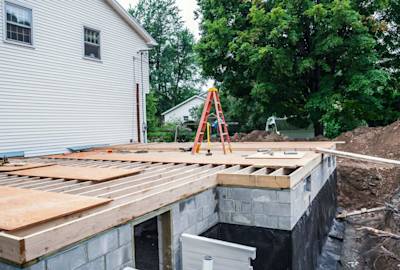The topic of In-Law Suites has become increasingly popular in recent years. Also known as granny flats, mother-in-law suites, or accessory dwelling units (ADUs), these structures are essentially a fully functioning living space located on the property of a larger home. They are commonly used as separate living quarters for in-laws or elderly parents, hence the name. This blog post will serve as a complete guide to understanding, planning, and implementing an In-Law Suite in your own residence.
What is an In-Law Suite?
An In-Law Suite is a private living space that can either be attached or detached from the primary residence. It typically consists of:
- A bedroom
- A bathroom
- A small kitchen or kitchenette
- A living area
- Separate entry
The exact size, layout, and features of an In-Law Suite depend on your specific needs, budget, and available space. Some homeowners extend their house to accommodate the suite, while others convert an existing structure like a basement or garage.
Benefits of an In-Law Suite
There are plenty of reasons why homeowners decide to add an In-Law Suite to their property. Here are some key benefits:
- Additional living space: An In-Law Suite is an excellent solution when you want to accommodate aging parents, adult children, or guests without sacrificing everyone's privacy.
- Rental income potential: You can rent out your In-Law Suite for added income, especially if it complies with local regulations.
- Increases property value: Having a well-designed and fully functional In-Law Suite can significantly increase your property value.
Legalities and Regulations Surrounding In-Law Suites
Before you begin planning your In-Law Suite, it’s crucial to understand the zoning laws and regulations in your area. Especially when considering renting it out. Issues to examine include:
- Zoning rules
- Building codes and permits
- Restrictions on who can live in an ADU
- Rules for renting out the suite
Check with your local city or county zoning office to clarify these regulations.
Planning and Designing Your In-Law Suite
Once you understand the legalities, you can begin planning and designing your suite. Here are some factors to consider:
- Location: Determine where you will put the In-Law Suite. Consider accessibility and privacy.
- Space Planning: Think about how space will be used and allocate adequate space for bedrooms, living and dining area, kitchen, and bathroom.
- Amenities: Decide on the amenities you'll include like laundry facilities, kitchen appliances, and outdoor spaces.
- Accessibility: If the suite will be used by elderly or disabled individuals, you'll need to consider accessible design features.
Cost of Building an In-Law Suite
The cost of building an In-Law Suite can vary widely depending on many factors:
- The size of the suite
- The complexity of the layout
- The materials and finishes you choose
- Whether you're converting or building from scratch
Costs typically range anywhere from $40,000 to $200,000 or more. It is prudent to budget at least 10% more than what you estimate for unforeseen costs.
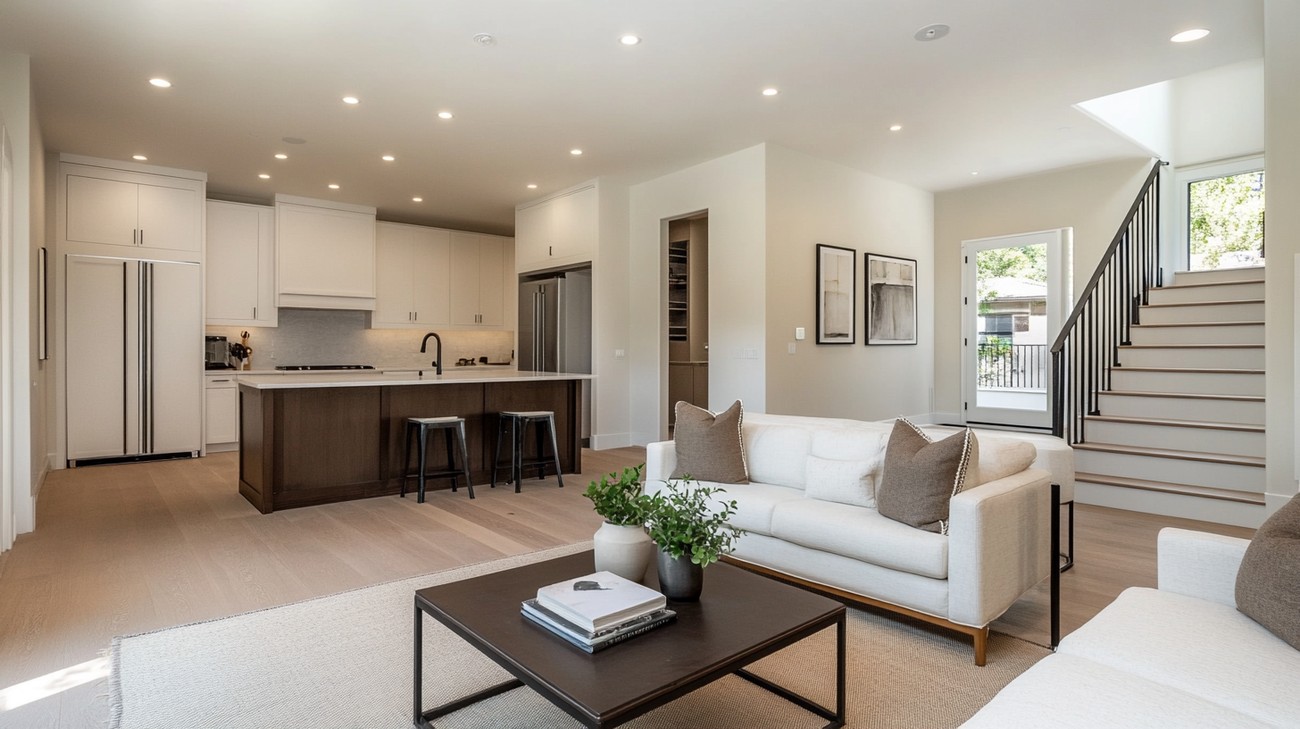
Frequently Asked Questions about In Law Suite
What Is the Purpose of an In-Law Suite?
An In-Law Suite provides a separate living space for parents or older loved ones, allowing them to be near their family for support and companionship while maintaining their independence and privacy. The suite can also serve as a guest house for visitors or as a rental unit.
What Typically Includes in an In-Law Suite?
An In-Law Suite usually consists of a bedroom, bathroom, kitchen or kitchenette, and a small living area. The exact contents can vary depending on the needs and preferences of the inhabitants, but the point is to create a fully self-contained living space.
How Much Does an In-Law Suite Cost?
The cost to add an In-Law Suite to your home can range widely depending on a variety of factors, including the size of the suite, the region where you live, and the complexity of the construction. On average, however, you can expect to spend between $40,000 and $125,000.
Are In-Law Suites a Good Investment?
In many cases, adding an In-Law Suite to your home can be a good investment. It can increase the resale value of your property and provide you with rental income if you choose to rent it out. Plus, it could potentially save you money if it enables you to avoid the cost of a nursing home or live-in caregiver for an elderly loved one.
Are In-Law Suites Legal?
Whether an In-Law Suite is legal will depend on the zoning laws and building codes in your specific area. Before starting any construction project, it's important to check with local authorities to ensure you're in compliance with all laws and regulations.
Do In-Law Suites Add Value to a Home?
Yes, In-Law Suites can add significant value to your home. According to research, homes with In-Law Suites are valued significantly higher compared to similar homes without them. The increase in value is due to the increased square footage and the ability to generate rental income, among other factors.
Can I Rent Out my In-Law Suite?
Yes, many homeowners choose to rent out their In-Law Suites for additional income. However, you should check your local laws and regulations before doing so, as some areas have specific rules about renting out secondary dwellings.
What Is the Difference Between an In-Law Suite and a Guest House?
A guest house is often a separate building, while an In-Law Suite is typically a part of the main home, either in a converted space like a basement or over a garage. Furthermore, a guest house is typically used for short-term guests, whereas an In-Law Suite is designed for long-term inhabitants.
How Big Is an Average In-Law Suite?
The size of an In-Law Suite can vary greatly depending on the size of the property and individual needs. On average, however, an In-Law Suite is typically around 600-750 square feet.

Pros of an In-Law Suite
Additional Space
Comfort and Privacy
One of the most significant advantages of an in-law suite is the additional space it provides. This extra room can accommodate an increasing family, visiting guests, or serve as comfortable living quarters for elderly parents. For larger families, an in-law suite can provide an effective solution to space-related problems by offering a separate area for certain family members to live. This comfort and privacy can be particularly beneficial when entertaining overnight guests who prefer their independent space.
Versatile Usage
In addition to offering additional space for living, an in-law suite can also be used for various other purposes depending on individual family needs. It can serve as a home office, a playroom for kids, a hobby or craft room, or even a home gym. Hence, having an in-law suite gives you versatile usage capabilities.
Increased Property Value
Attractiveness to Buyers
An in-law suite can significantly boost the value of a property. It is an especially attractive feature for potential buyers who may have multi-generational living arrangements or need the additional space for other purposes. It can provide a unique selling point to differentiate your property from others in the market.
Additional Rental Income
For homeowners seeking additional income, an in-law suite can also be rented out. This can provide a steady source of income to offset mortgage payments or other costs. Furthermore, the suite can act as a type of insurance for the homeowner, in case they face financial difficulties in the future, they always have the option to rent out the suite.
Increasing Independence for Family Members
An in-law suite can give family members who are elderly, disabled, or otherwise dependent, a sense of independence while being close to their loved ones. This is particularly beneficial for senior family members who may want to live near their children and grandchildren but also value their independence and privacy. Also, a family with members who have special needs will find an in-law suite to be an ideal living arrangement.
Cons of an In-Law Suite
Increased Responsibility
Maintenance
Having an additional suite means extra upkeep and maintenance work. This can include cleaning, repairs, property taxes, and insurance. Over time, these costs can accumulate and lead to significant financial commitments.
Greater Utilities Consumption
Another factor to consider when installing an in-law suite is the increased utilities consumption. More room means more electric lighting, increased water usage, extra cooling and heating costs. This leads to higher utility bills.
Zoning Restrictions
Some areas have zoning regulations that prohibit the addition of in-law suites or impose specific restrictions, such as limiting the suite's size or requiring a separate entrance. It's crucial to thoroughly research and understand these restrictions before investing in an in-law suite. Non-compliance with such rules can lead to citations, fines, and even litigation.
Costs of Building an In-Law Suite
Adding an in-law suite to your property often involves significant costs for construction, appliances, and furnishing. Even if you have the space to add such a suite, you would need to budget for construction and renovation costs adequately. Depending on your particular needs and preferences, the initial outlay can be quite high.
Potential for Family Frictions
While it may seem appealing to have extended family members live in close proximity, it must be noted that this setup could also potentially lead to disagreements and conflicts. Different generational attitudes and habits might clash leading to family tension. Boundaries can be blurred causing disputes over privacy and space, which would cause strain on relationships.

Myths and Misconceptions about In-Law Suites:
In-law suites, also known as granny suites, mother-in-law suites, or secondary suites, are a wonderful investment for many homeowners. However, there are numerous misconceptions and myths about these versatile spaces that need to be debunked or clarified. This article will address some of the common misconceptions and provide accurate and updated information to anyone considering adding an in-law suite to their property.
Misconception 1: In-Law Suites are Only for In-Laws
The Name Misleads
Many people assume that in-law suites are only meant for the parents of a spouse or the so-called "in-laws". But this could not be further from the truth. An in-law suite can be for anyone: adult children, renters, or even a home office. The name "in-law suite" is just a term and does not dictate who should or should not use the space.
Misconception 2: In-Law Suites Decrease Property Value
Scaring off Potential Buyers
Some homeowners fear that by adding an in-law suite to their property, they might decrease its resale value because potential buyers might be put off by the idea. The reality, however, is that well-designed and professionally constructed in-law suites can increase the value of your property because of their versatility and the extra living space they provide.
Misconception 3: In-Law Suites are Too Expensive to Build
Breaking the Bank?
There's a myth that constructing an in-law suite is overly expensive. While it is true that there are costs involved in construction, it's essential to note that these projects have a wide price range. Many factors can affect the cost, such as the type of in-law suite you want to construct (detached or attached), the materials you want to use, and the price of labor in your specific area.
Misconception 4: In-Law Suites are Always Separate Buildings
Detached or Attached?
The principal belief is that an in-law suite always has to be a separate building or structure. This isn't necessarily true. An in-law suite can also be a converted basement, a transformed garage, or an addition to the main home. It completely depends on preference and the available space on your property.
Misconception 5: In-Law Suites Always Come with a Full Kitchen and Bathroom
Full Amenities?
Many people erroneously believe that an in-law suite must contain a full kitchen and full bath. While many do include these amenities, it's not a requirement, and an in-law suite can be designed based on individual needs and resources.
Misconception 6: All Cities and Towns Allow In-Law Suites
Zoning Restrictions
Homeowners often assume that they can add an in-law suite to their property, no matter where they live. Depending on your local zoning laws and regulations, you may or may not be able to construct an in-law suite. Some cities and towns do not allow these additions, while others have very strict guidelines.
Misconception 7: In-Law Suites are Only for Older Adults
Age Restrictions?
A common myth is that only older adults can use in-law suites. In reality, these spaces can be very versatile- they can serve as guest rooms, home offices, or even as rental income properties.
Misconception 8: In-Law Suites Will Equate to Loss of Independence
Living Together?
Many people believe that having an in-law suite means living under the same roof and sharing common areas, leading to a loss of independence. But these suites are designed to provide privacy with separate entrances and all the necessary accommodations inside the unit.
Clearing up misconceptions about in-law suites can help homeowners make informed decisions about possible home investments. These suites could be an excellent addition to properties given their multifunctional nature and the potential to increase property value.
Summary
So, you're thinking about adding an In-Law Suite to your home. That's a great idea! This addition to your home can serve multiple purposes, from housing an elderly relative, to serving as a rental property, or simply providing extra room for guests. The options are endless and can add substantial value to your home. Reaping these benefits will first require careful planning and a clear understanding of local zoning laws and regulations.
When considering an In-Law Suite, think about the design elements that best fit your needs. Are you envisioning a full apartment with kitchen, bedroom, and bathroom or just a simple bedroom and bathroom combination? A consultation with a professional architect or designer can help you figure out the best possible layout. Also, remember that while an In Law Suite can boost your home's value, the cost of adding one can be substantial. It’s important to plan carefully and ensure that it’s a financially viable decision for your specific situation.
Finally, before going ahead with the In-Law Suite, consider the emotional and privacy aspects. Living with in-laws or tenants can alter family dynamics and might require some adjustments, especially in terms of maintaining privacy. However, if all these factors are carefully thought out and executed, an In-Law Suite can be an amazing asset to your home, creating a win-win situation for everyone involved. After all, you’re not just creating a living space, you’re creating a place for memories to be made. So go ahead, plan that In-Law Suite, and watch your house transform into an even warmer, welcoming home.
About New Day Construction
New Day Construction, a Washington-based company, is your friendly local expert in a range of construction services. Hailing from Bellevue, WA, our team of dedicated professionals has a knack for turning construction visions into reality. We're proud to provide our community with high-quality work that spans from residential renovations to larger commercial projects. Besides being fully committed to our craft, we also maintain a strong focus on sustainable building, collaborating closely with clients to create structures that are not only visually appealing but also eco-friendly. With a track record that boasts excellence, New Day Construction is the go-to team in Bellevue for all your construction-related needs.
